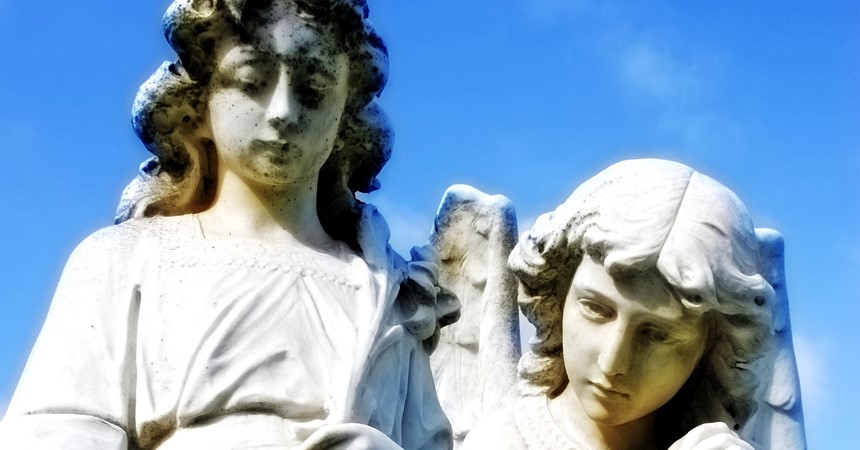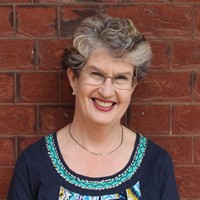1 What was the genesis of the Grieve Project?
Back in 2013, palliative care nurse and writer-member of HWC, Kathleen Wurth, and I, in my role as HWC Director, wanted a project to honour Grief Awareness Month – August. We held the first competition ‘in house’ and had a 70% response from our members. This thrilled us − and also made us wonder if we had tapped into something that needed a writing opportunity.
2 How has it changed and developed since 2013?
As a result of the excellent response by members ‘in-house’ we contacted the National Association of Loss and Grief (Dubbo) and asked if it would partner with us to take the project state-wide. NALAG suggested we go national because grief doesn’t end at the state borders! So, in 2014, we went national and we were stunned at the response from across the country. Every state had entries and the published anthology has works from every state. Suicide, Alzheimer’s, loss of child, a job, moving house, loss of mobility, a pet, missing persons, funerals, illness . . . the stories poured in. As an aside, I find it interesting that we receive so few stories around marriage and family breakdown.
In 2015 we again received hundreds of entries, which a panel of nine judges read and we also brought in poet Jean Kent to judge the poetry entries.
In 2016 we have more partners and the anthology is becoming well known in the relevant industries. We are thrilled to have SIDS and Kids, Alzheimer’s Australia and both Youth Suicide Prevention and Suicide Prevention Australia on board, as well as funeral organisations, palliative care and individuals who work in this area.
One of the judges of this year’s competition is Co-ordinator of Seasons for Growth, Benita Tait. Seasons for Growth is a suite of programs developed by Good Grief to support children, young people and adults to work effectively through change, loss and grief in their lives. To learn more, please visit Seasons for Growth.
3 While the name ‘Grieve’ could perhaps be a little off-putting, what does it achieve, in your experience?
We chose the verb ‘grieve’ rather than the noun, ‘grief’, because we wanted to tap into the action, the ‘doing’ and ‘being’ of grief. Also, the sound of the word, when uttered, lingers longer on your tongue than the abrupt ‘f’ at the end of ‘grief’. ‘Grieve’ is a musical word when uttered so both the fact it is a verb and sounds as powerful as it is, we hope, stirs the hearts of participants and calls forward their most profound thoughts and contemplations.
4 Is there a story from the last three years that stays with you as the convenor?
The winners especially – the fresh way they have looked at grieving. It is both the story content and the way it is told that gets writers into the finalist group. These stories work at a deeply emotional level yet can at times work so simply. They are raw without being bitter, they are vulnerable and emotionally open and have a sense of the storyteller being carried along by the topic. Michael Tippett’s winning piece, Penny Lane’s story (overall winner), is such an honest, wrenching piece about the loss of her adult daughter. And HWC selected winner ‘No Questions Asked’ about the very special idea of choosing loss over continued pain: the story of a daughter who chooses to cut off contact with her mother because trying to stay in the relationship has brought so much pain due to her mother’s alcoholism. I found this concept of ‘choosing to lose’ someone very new and thought-provoking, and well told. The pace of the piece builds so well, yet all done in 500 words.
5 Finally, and more broadly, how do you, as Director of HWC, describe the benefit and appeal of reading and writing? Writers festivals, blogs, books (online and in ‘real life’) and magazines seem as popular as ever, despite the prophets of doom who are always saying ‘print is dying’.
There will always be storytellers and story receivers because the story will never die. Reading and writing are ways in which we receive and tell stories. Stories came long before writing. Remember, reading and writing are relatively new things ie stories written for and read by the mass population is a new concept in history. Always there have been many people who cannot read and write, yet storytelling and appreciation of this is as old as humans – think of telling a story through dance and pictures as well as through words. So, I believe the printed word will continue to evolve but it is only a delivery system. The love of a well told story will never die.
To learn more and enter the 2016 Grieve Writing Competition, which closes on 16 June, please visit the Hunter Writers Centre.

